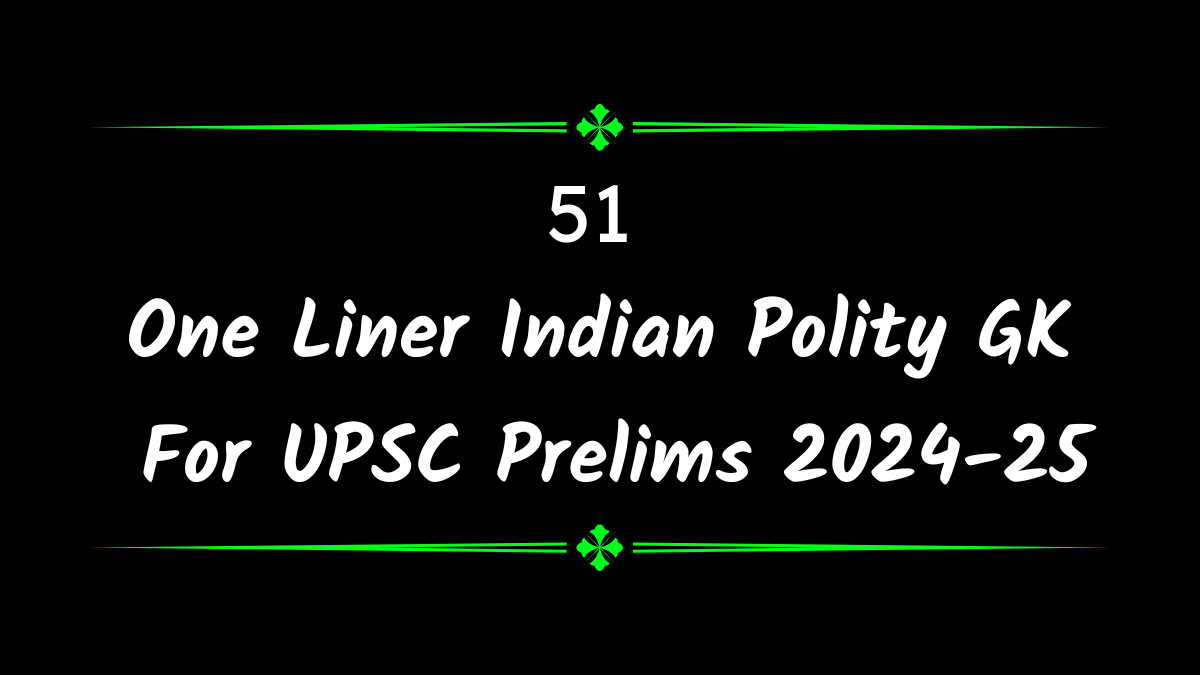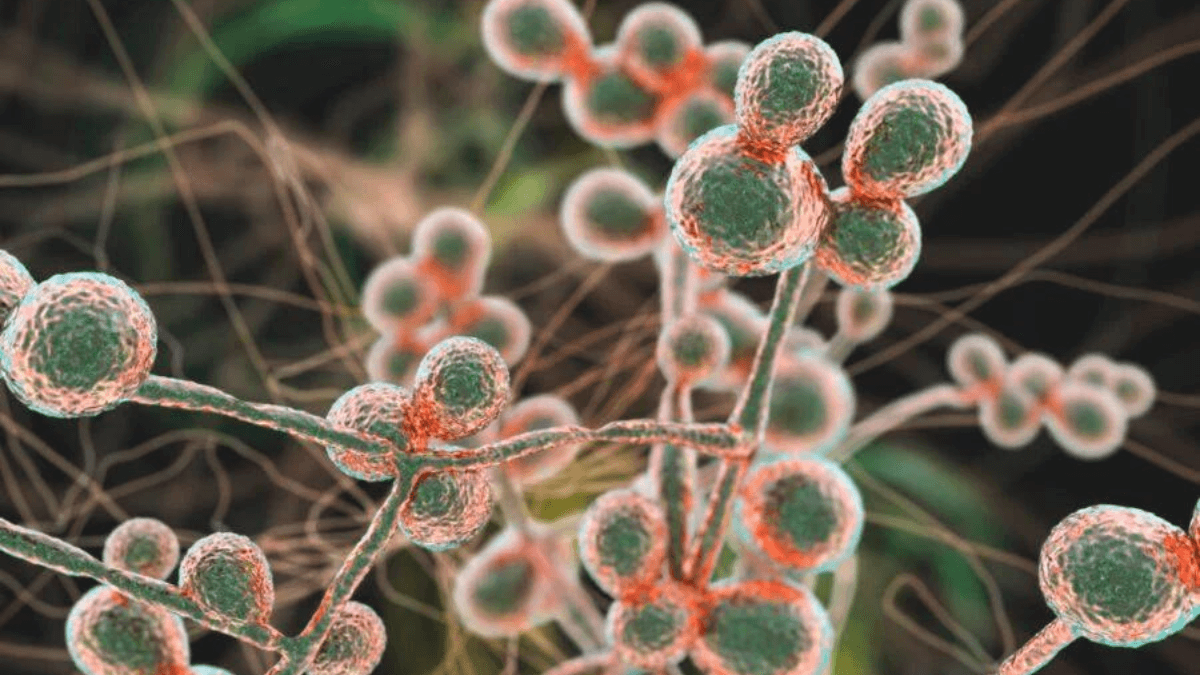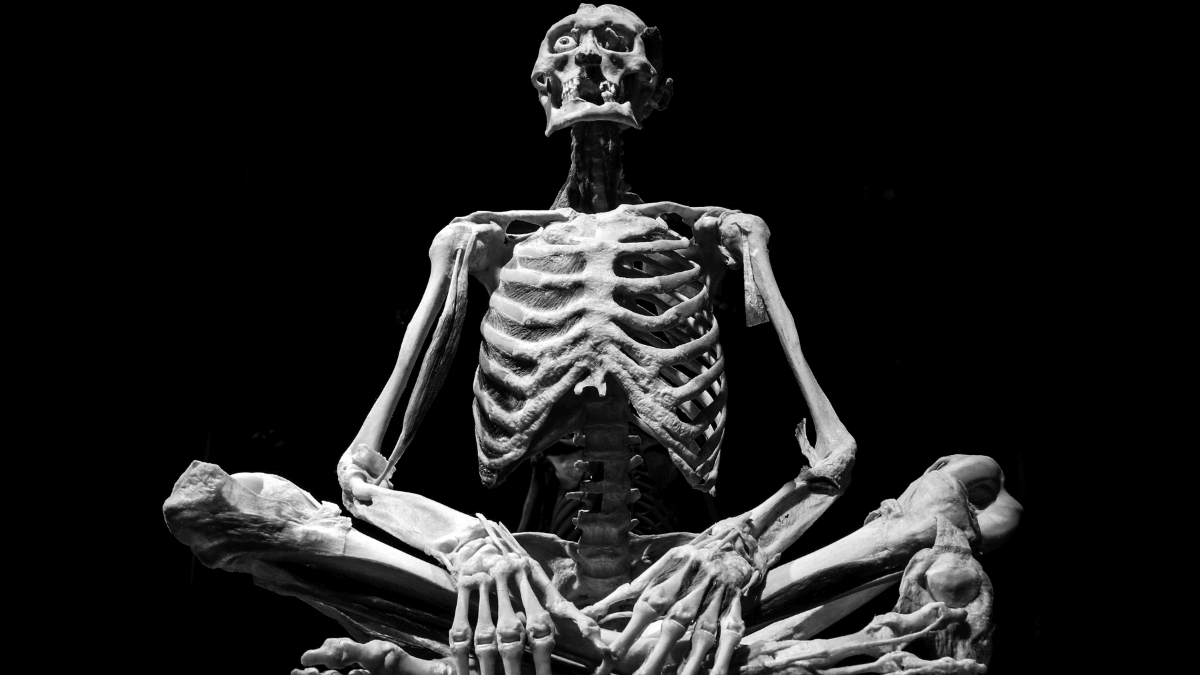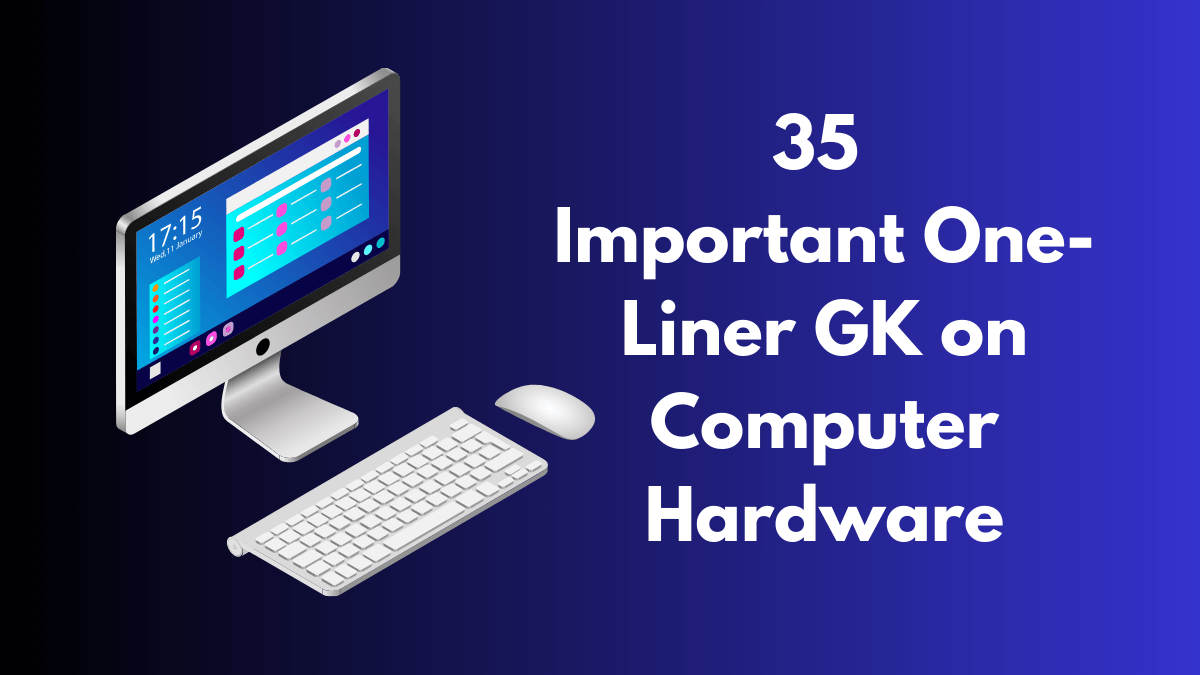51 One Liner Indian Polity GK For UPSC Prelims: The most important subject of UPSC CSE Prelims and Mains is Polity. In this blog, I’ll write 51 One Liner Indian Polity GK. All of these are important for UPSC Prelims.
51 One Line Indian Polity GK
1. Any money bill cannot be introduced in the Parliament without the consent of the President of India.
2. Under Article 356 of the Constitution, the President can take over the administration of the State in his own hand.
3. Judiciary is the protector of the Fundamental Rights of a citizen.
4. The Chairman of the Public Accounts Committee is a member of the Opposition Party.
5. The Vice-President of India is elected by an electoral college constituted of members of the two Houses of Parliament.
6. The ex-officio Chairman of the Rajya Sabha is the Vice-President.
7. The minimum age required by a citizen to be qualified for being a member of the Lok Sabha is 25 years.
8. The members of the State Public Service Commission are appointed by the Governor of the State.
9. 73rd constitutional amendments gives constitutional status to the Panchayati Raj institutions.
10. The Advocate General of a State is appointed by the Governor.
11. The quorum requirements in the Rajya Sabha is 25.
12. Bills other than money bills are introduced for being passed by the Parliament in any House of the Parliament.
13. Attorney General of India is the first Law Officer of the Government of India.
14. The Comptroller and Auditor General is the Guardian of the Public Purse in India.
15. D.D. Basu says, “The Constitution of India is neither purely federal nor purely unitary but is a combination of both”.
16. The Indian Constitution was adopted by the Constituent Assembly on November 26, 1949.
17. For the purpose of the legislation, education is enlisted in the Concurrent List.
18. In the Constitution of India, ‘Protection of Life and Personal Liberty’ is guaranteed under Article 21.
19. The Supreme Court is the custodian of the Indian Constitution.
20. Article 21 of the Indian Constitution ensures Right to Life and Personal Liberty.
21. The government of India passed the Act to protect human rights in 1993.
22. Under 61st amendment of the Indian Constitution was the voting age reduced to 18 from 21.
23. The Vice-President is called as ‘His Superfluous Highness’.
24. The Judges of the Supreme Court retire at the age of 65 years.
25. India is a union of states.
26. Inter-state council is formed by the President.
27. The members of the Public Accounts Committee are elected by the members of both Houses of Parliament through the method of proportional representation by single transferable vote.
28. NRC (National Register of Citizens) is now in the form of an Act.
29. The chief justice of the High Court is appointed by the President.
30. Article 18 of the Indian Constitution guarantees the right to Equality.
31. The President of India is elected by ‘both the houses of parliament along with the members of the state assemblies’.
32. The Election Commission is constructed by the President.
33. On 14 January 1969, Madras State officially renamed ‘Tamil Nadu’.
34. The first non-Congress government at the Center was led by Morarji Desai.
35. The Supreme Court of India upheld that RTI was applicable to the Office of the CJI also.
36. The literal meaning of ‘Lokpal’ is Caretaker of the people.
37. Indian Constitution was prepared by Dr. B.R. Ambedkar.
38. The Chairperson of Rajya Sabha is Vice-President of India.
39. According to Indian Constitution, the State Legislatures select the members of Rajya Sabha.
40. In the logo of Lokpal, vigilance is represented by Ashoka Chakra.
41. The right to vote and to be elected in India is a constitutional right.
42. In the Constitution of India, the promotion of international peace and security is included in the Directive Principles of State Policy.
43. The idea of a ‘Welfare State’ in the Indian Constitution is enshrined in its Directive Principles of State Policy.
44. The fundamental object of the ‘Panchayati Raj’ system is to ensure Democratic decentralization.
45. The power to increase the number of judges in the Supreme Court of India is vested in the Parliament.
46. Article 19 of the Constitution of India guarantees all citizens the freedom of speech and expression.
47. Seventh Schedule of the Constitution of India distributes power between the Union and the States.
48. The 86th Amendment of the Constitution of India altered a Directive Principle of the Constitution to provide for early childhood care and education for all children until they complete the age of 6 years.
49. Dr. Rajendra Prasad was the first President of India to hoist the flag at Red Fort on Republic Day.
50. The 97th Constitutional Amendment dealt with Anti-Defection Bill.
51. The Right to Information Act was passed in 2005.
You can check out a best polity book for UPSC CSE [Check Out]. This link is an amazon affiliate link. I’ll earn some commission, if you check out a book through this link.







